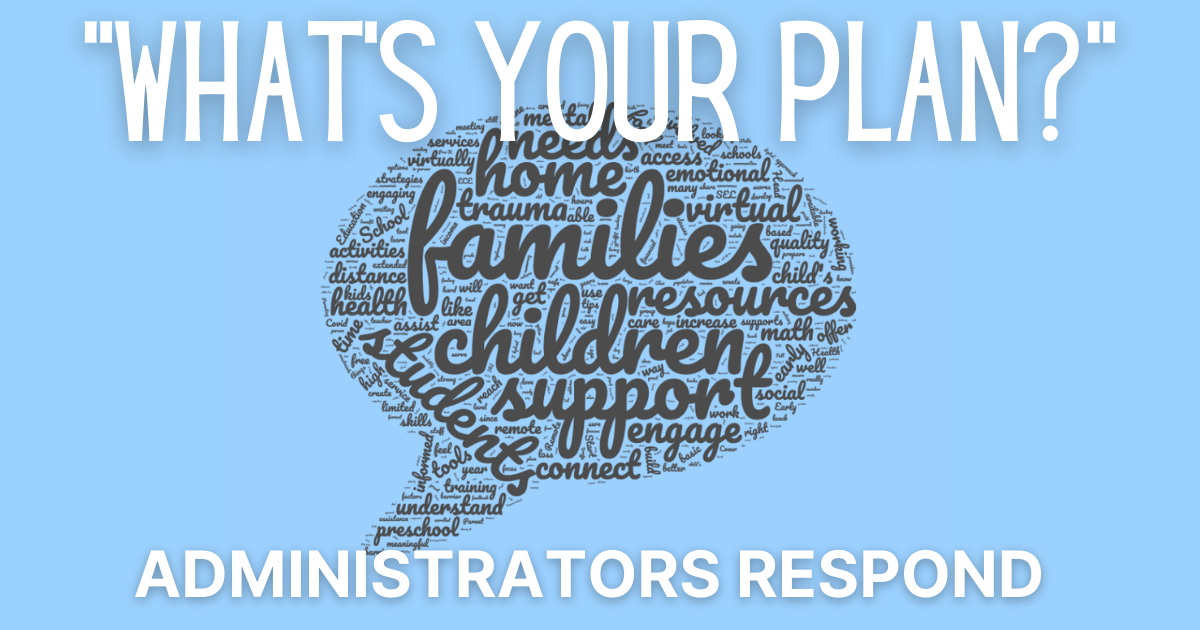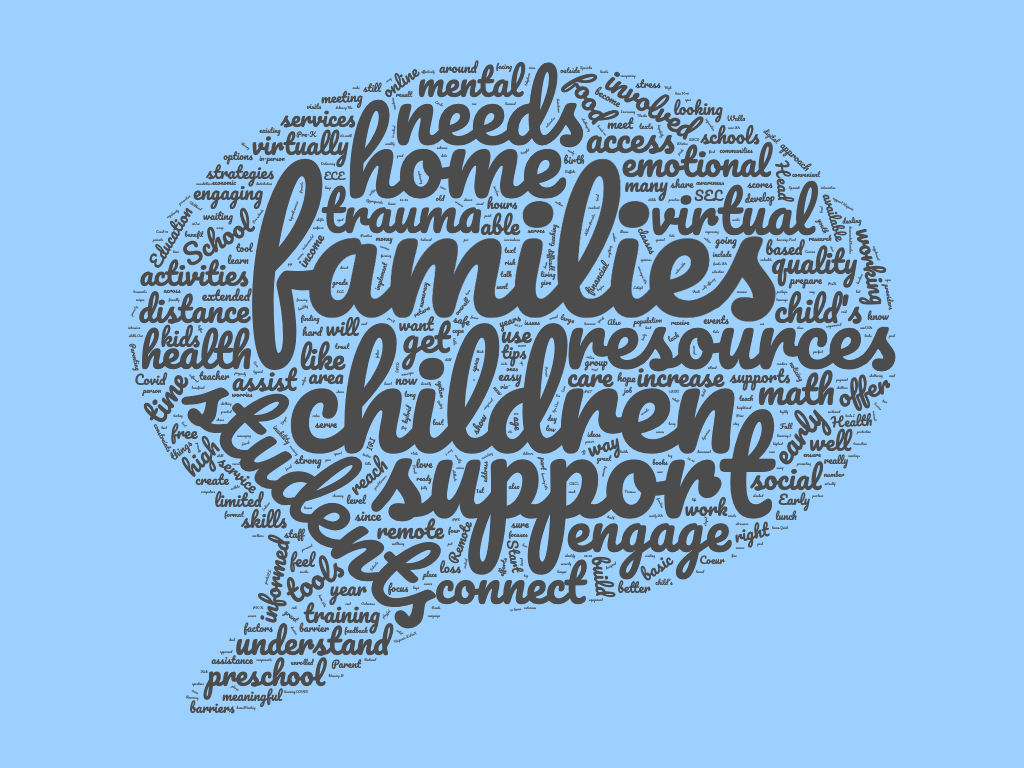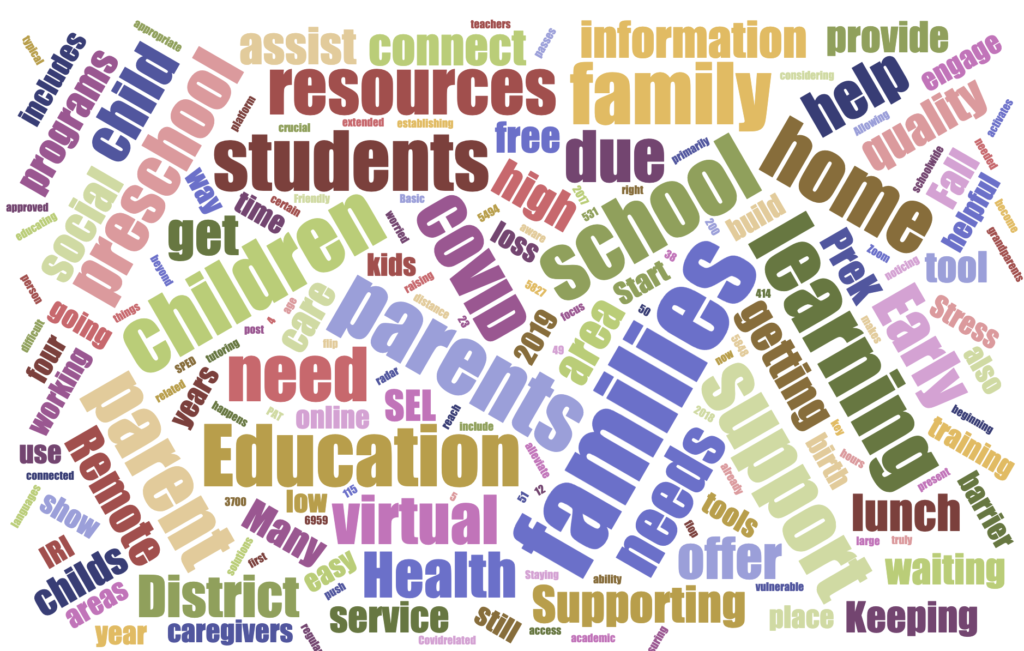By Curran Mahowald, ParentPowered partnerships manager
NOTE: This post was written during the height of the COVID-19 pandemic. Its insights and resources are still relevant today.
When you sit down to dinner after a long day at work, do you immediately begin to unpack your day to a captive audience of your spouse, children, or dog? Or are you laser-focused on the task of consuming your meal, making eye contact with no one but your lasagna until it’s gone?
Unfortunately for my current roommates, I like to unpack while they like to tuck in. But once the business of eating is taken care of, we get to my favorite part. That’s when the teacher in our house shares a school story or two. And I’m always fascinated to hear what’s going on. Stories range from managing quarantine protocols to planning cultural celebrations to organizing summer school. And so the classic ritual of dinnertime conversation gives me a window into the heart of the local schools. Into the heart of my community.
Listening Across the Country
Luckily, as a Partnerships Manager at ParentPowered, the insights I gain are not limited to those passed on by one teacher at one school in one place. In my role, I have the privilege of speaking to education administrators across the country about their school plans. I get to hear from superintendents, principals, Title I coordinators, curriculum & instruction directors, family engagement coordinators, directors at Head Starts and at a variety of community-based organizations.
I love getting to speak one-on-one with education administrators all over the country. One day I could be talking with a United Way director in a rural county. Then the next day I could be talking to a family engagement specialist at an urban school district about their school plans and family engagement goals. Although pandemic conditions and policies vary by location, all educators share a commitment to supporting young learners and their families in thoughtful and powerful ways.
You could say we’re all in the same ocean, but with different boats. And if the pandemic has taught us anything, it’s that nobody should have to row solo, or without equipment. To help those who’ve been paddling hard feel less alone, I compiled insights from my conversations to share with you.
Everyone has a plan – they have to! And while not every school plan is the same, there are common themes. So here’s what I’m hearing from educators these days. If any of these themes are on your mind, know that you’re in good company!
1. Give More Than We Ask
After a year of new demands on parents, we want to re-establish goodwill by giving parents something that helps them without asking much from them.
With the majority of parents taking on ever-more responsibility for daily learning, parent burnout is something education administrators know they need to be sensitive about. But schools and districts need parents as partners now more than ever. Specifically, administrators are keenly aware that they need parental engagement as the summer rapidly approaches and important decisions need to be made for future school plans.
2. Initiative Fatigue
With all this change, now’s not the time to burden our staff with one more project or families with one more new program.
Education administrators are sharing with me that they’re taking a less-is-more approach to planning new programming or initiatives. This is for the sake of kids, families, and the professionals who serve them. Anything new that’s introduced should be low-effort, high impact. (As ParentPowered partners know, we believe a low-lift, high-impact approach to family engagement is always important!)
3. Reestablish the Connection
Now’s the time to reconnect with families and meaningfully engage them in school re-entry planning.
Parents have lots of questions and anxieties about returning to in-person or hybrid learning:
- How can I assuage my child’s anxiety about the school setting?
- How can I manage my own anxiety?
- How can I answer difficult questions my child asks?
- How can my child rebuild their fraying focus and attention? Their confidence and social skills?
Education administrators know they can rebuild trust with families by having support on these issues readily accessible when parents inevitably need it. So instead of having family engagement take a secondary role, it’s become a centerpiece of new school plans. And the planning process itself.
4. Closing the Distance
We want to do better at reaching families who don’t have internet access.
The pandemic put the digital divide into high relief. Districts are doing what they can to ensure that every child has access to instruction and resources, but many students remain disconnected. Based on my conversations, education administrators will continue to look for ways to close the gap AND to support internet-free remote learning into the future.
5. Beyond the Vocal Minority
What about the families who do not show up at events, read emails, or answer online surveys?
Equity and access in family engagement means removing barriers and reaching ALL families. It’s easy to hold a town hall or focus group, incorporate the feedback and call it a day. But shrewd education administrators know this is only the tip of the iceberg. Even an online survey will probably be biased toward families with internet access.
I admire the leaders of community based organizations that I speak to for seeing beyond the borders of their organization. And those thinking strategically about how they can reach all families in their geographic area. As one put it, all the children are our children.
And I want to give a shout-out to partners who are using the ParentPowered’s survey feature to send in-text surveys, where parents simply text back A, B, C, or D. The results are automatically compiled and displayed in the ParentPowered Dashboard. It’s a really great way to get quick feedback from families on key, time-sensitive questions to inform your school plans.
6. Trauma is Topical
We need to offer trauma-informed support for families.
After more than a year of uncertainty and crisis, education administrators are keenly attuned to the trauma families have experienced. And they recognize that offering emotional and mental health support may be the key to healing and getting back on track academically. SEL resources abound, and educators want to make sure families have access to them. We’re seeing more school plans that make buffering the impact of trauma a focus of their work. We’re also hearing more partners choose to give all their families our trauma-informed program, because they recognize that every family can benefit from the extra support.
7. Combat Learning Loss & Avoid Summer Slide
We have been tasked with putting together a plan to combat summer learning loss, and we know parents are our best partners.
Education administrators have a promise to deliver on and they’re taking it seriously. They need proven solutions with a robust evidence base for producing measurable outcomes.
There’s a lot of catching up to do, but it’s also important to acknowledge that summer is different and home is not school. Keeping it simple and taking learning one step at a time are great strategies for supporting families in summer success.
8. Return to (New) Normal
We want to support families of young learners returning to hybrid or in-person instruction.
The call has come from parents and politicians alike: get our students back to school! But the political, logistical, and emotional barriers to doing so are real. Trying to recreate the old way of doing school in new circumstances may not be enough; and innovative solutions are required.
About the author
Curran Mahowald is a former high school language teacher turned education research advocate. In addition to having worked at ParentPowered, she has also designed parent-facing informational materials at Oakland Unified School District and currently works on improving national research-to-practice infrastructure at the Annenberg Institute for School Reform at Brown University. Curran holds an M.A. in Cognitive Science in Education from Teachers College, Columbia University and B.A.s in Linguistics and French from the University of Southern California.







